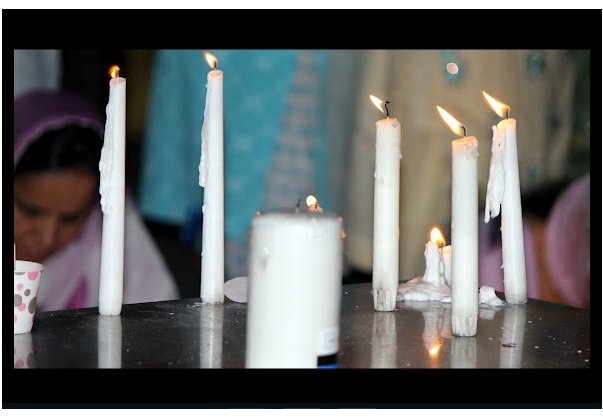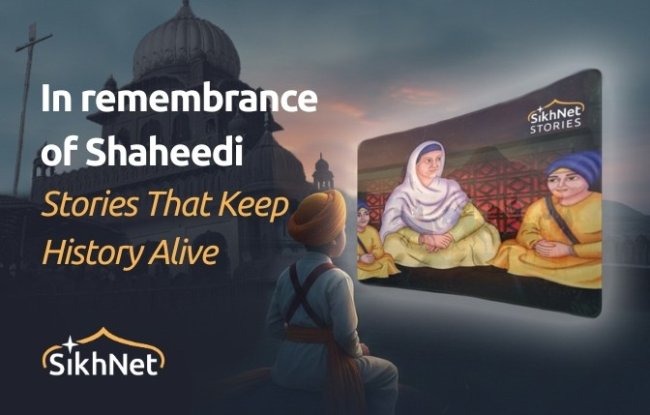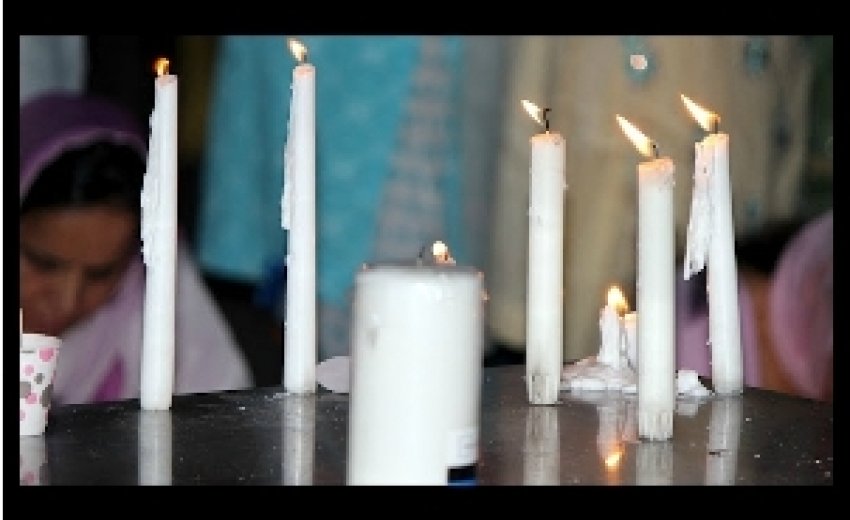
Remembering the Victims - Colorado Spring Gurudwara
Sunday was a typical day for the Sikh community in Colorado Springs. Their temple, called a gurudwara, opened early and anyone could stop by for breakfast.
Inside, bright colored ribbon hung from the ceiling and colored lights decorated the walls. In the front, their worship centered around their holy book and everyone, men and women, covered their heads and took off their shoes in a sign of reverence.
It’s a faith community that has opened it doors wider rather than adding locks in the aftermath of an August mass-shooting at a Wisconsin temple that’s been labeled a hate crime.
The large parking lot of the gurudwara in northeast Colorado Springs was full as about 60 families crammed into the small building. Most were from Colorado Springs but some traveled from as far as Denver or Pueblo. Little boys wearing headscarves and Gap or Nike T-shirts played together while groups of girls wearing bright blues, oranges and yellows giggled together and talked.
At the front, helping to translate texts into English and leading much of the singing is 15-year-old Serene Singh. She acts as an unofficial spokeswoman for the community, often inviting college groups and anyone else interested to stop by and learn more about Sikhism.
She said that overall the community has been supportive since they moved into their temple in February 2011. She wishes more visitors stopped by though.
In early August, a lone gunman entered a Sikh temple in Oak Creek, Wisc., killing six people and wounding four. The man who fired the shots, idenitfied by authorities as Army veteran Wade Michael Page, 40, had ties to white supremacy groups. He killed himself, police said.
The mass shooting and other hate crimes against Sikhs — of which there are many Singh says — can hurt the community deeply. But instead of closing up their ranks, they try to open up more in hope that when people understand their religion, they will grow more tolerant of it.
“The shooting really dropped my heart a lot,” she said. “One of the things that hurt the most was that a person who didn’t know who we were took such a drastic act.”
A few days after the attack, the community hosted a vigil and in attendance were Christians, Hindus, Muslims and Jews. They were grateful for the support.
“It was almost a good thing from a bad thing,” she said.
She hopes that the community support has a lasting effect and that more people will come to learn.
Sikhism is a monotheistic religion which started nearly 500 years ago in the Punjab province of India. The religion’s founder, Guru Nanak, focused his teachings on service to others and love.
Larger Sikh temples in the U.S. and throughout the world are open for 24 hours, offering a healthy meal and place to stay for anyone in need.
“We’re here to say that, if you want to know about us, just come and ask,” Serene Singh said.

